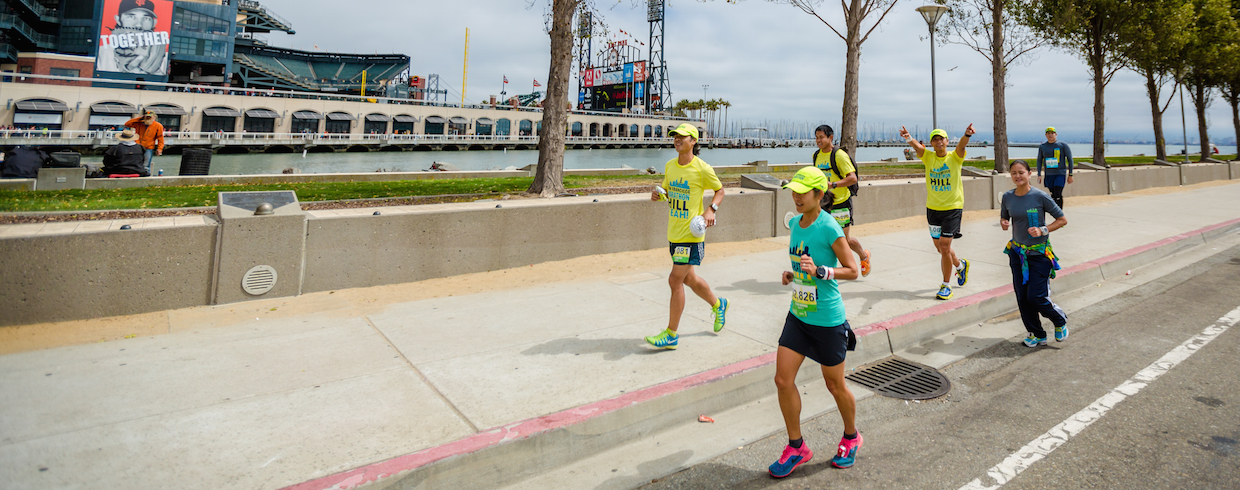Train Well 2: Carb Loading Myth Pt. II, by Dr. Jeff (Advice from the Medical Tent)
After citing the benefits of skipping a large meal the night before a marathon (see The Myth of Carb Loading), a reader asked, “Are you saying that carb loading is bad or is it just bad the night before the race?” Although it is not “bad,” carb loading is difficult with minimal benefit.
Classic carb loading: After intense exercise at maximal effort 7 days prior to competition to deplete glycogen stores, a low carb diet is consumed for 3 days followed by a 3-day high carb diet. Although glycogen stores increase, this regimen is rarely tolerated in the week before a marathon.
A modified carb loading approach involves a high carb diet for 3 days prior to competition, but increases glycogen stores only 20%.
As discussed previously, training increases the size and number of mitochondria in muscle allowing greater use of fat for fuel. Since the body stores of fat energy are far greater than the limited glycogen stored in muscle and liver, focusing on carbohydrates is a distraction.
Wishing you healthy organs,
Jeff
Stay Tuned For: Train Well 3: The Benefits of Skipping the Meal Before The Biofreeze San Francisco Marathon
Put this advice to work at The 2018 San Francisco Marathon! #ThisIsHappening
“If I can motivate an attendee/reader to change a habit to improve their health, it makes my day job easier.” – Dr. Jeff Shapiro
A graduate of Yale & Stanford, Jeff coaches (since 1993) those seeking peak wellness through science. Jeff appeared on ABC News 20/20 (“Super Humans”), and consulted for CBS News 60 Minutes (“The Toughest Race”) and The Late Show with David Letterman. Jeff has completed 50 marathons, served as medical director for the San Francisco Marathon, and lectured at numerous organizations, including Google, B of A, Merrill Lynch, and SanDisk.
Save the Date!
Join Jeff at the next Golden Gate Relay – California’s Longest Party, held the first weekend in May. In the long run (walk or ride), organ donation saves lives!
Gather 12 friends/2 vans. Dress your best (costumes/decorated vans optional). Walk (125 miles, 6-12 walkers), run (125, 160 or 190 miles, 6-12 runners), or ride (30, 65, 130 or 190 miles, 1-3 riders). Support 125,000 Americans waiting for organs as a runner, walker, rider, volunteer or organ donor!


Terence
July 26, 2018 (1:36 pm)
This feels like a pretty bold suggestion to post on the SFM website. Not only does this fly in the face of conventional understandings of carbo-loading and fueling for athletic activities (though I get that this is billed as a myth-buster), it doesn’t seem to offer any caveats or room for other factors that may affect carbo-loading and fueling. Does this apply universally to men and women, old and young, fast and slow? Does blood flow during exercise vary with intensity? What’s the marginal increase in workload to digest last night’s dinner?
I understand we have a far greater supply of fat than carbs, but glycogen is also far more effective and efficient a fuel source than fat. Suggesting wholesale that it’s a distraction seems far-fetched, particularly because save for an uncited pie chart in the first post, I also don’t see any evidence backing these claims up.
Forgive me if I take this with a grain of salt (and probably a heap of pasta).